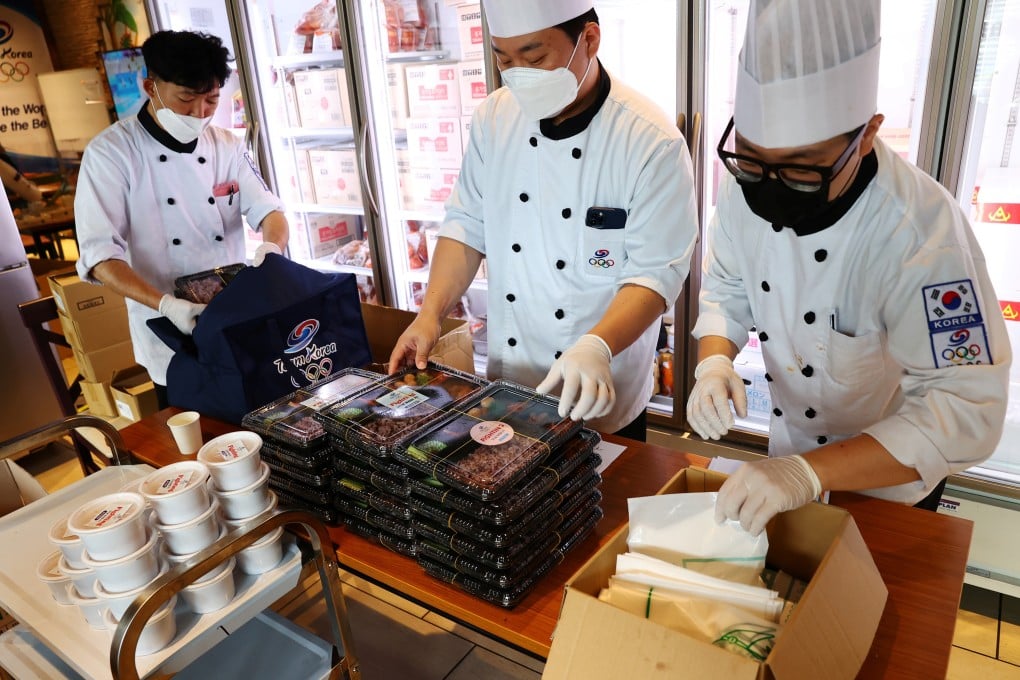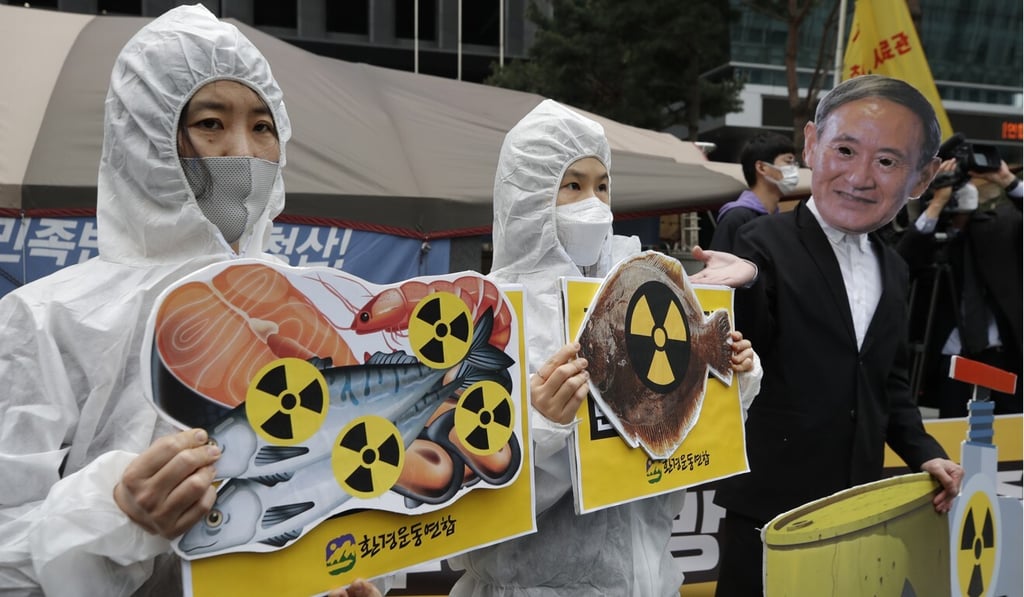Advertisement
Tokyo Olympics: Japan’s South Korea, China tensions resurface as legacy of war haunts Games
- Anti-Japanese grievances concerning territorial disputes, war crimes, and even produce from Fukushima have been aired during the Olympics
- A ‘surge of nationalism’ associated with global sporting events makes it easier for such unresolved issues to rise to the surface, an analyst said
Reading Time:5 minutes
Why you can trust SCMP
14

In a small hotel near the Olympic Village hired out exclusively for their use, a team of South Korean chefs has been cloistered away preparing meals throughout the Tokyo 2020 Olympics for the country’s entire delegation of 232 athletes and 122 officials.
The Koreans’ refusal to eat in the same dining hall as the thousands of other foreigners at the Games comes amid ongoing worries in South Korea about the quality of Japanese fish and produce, following the Fukushima nuclear disaster that was triggered by a devastating 9.0 magnitude earthquake and tsunami in March 2011.
It is a development that the Japanese government has viewed with some measure of despair, with officials urging Seoul to intervene and stressing that the concerns were unwarranted, according to sources who spoke to Kyodo News.
South Korea’s government says it never instructed its delegation to set up a food service, which according to reports includes screening ingredients for radioactivity.
Advertisement
But the issue is just one of several that Tokyo has had to confront from the visiting South Korean delegation – and their legions of supporters back home – during the Games.

Advertisement
Besides fears stemming from radioactivity, the actions of Korean athletes and officials have also been shaped by frayed bilateral relations, stemming from long-running disputes over compensation for forced labourers during Japan’s colonial-era occupation of South Korea and “comfort women”, a euphemism for sex slaves recruited to serve in Japan’s wartime military brothels.
Advertisement
Select Voice
Choose your listening speed
Get through articles 2x faster
1.25x
250 WPM
Slow
Average
Fast
1.25x